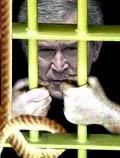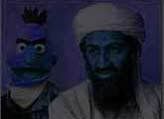| Find |
Monday, 3 August 2009
US troops now a 'coalition of one' in Iraq
The war in Iraq was truly an American-only effort Saturday after Britain and Australia, the last of its international partners, pulled out.
 Little attention was paid in Iraq to what effectively ended the so-called coalition of the willing, with the U.S. — as the leader of Multi-National Force, Iraq — letting the withdrawals pass without any public demonstration.
Little attention was paid in Iraq to what effectively ended the so-called coalition of the willing, with the U.S. — as the leader of Multi-National Force, Iraq — letting the withdrawals pass without any public demonstration.
The quiet end of the coalition was a departure from its creation, which saw then-U.S. President George W. Bush court countries for support before and after the March 2003 invasion.
"We're grateful to those partners who contributed in the past and we look forward to working with them in the future," military spokesman Army Lt. Col. Mark Ballesteros told The Associated Press in an e-mail.
At its height, the coalition numbered about 300,000 soldiers from 38 countries_ 250,000 from the United States, about 40,000 from Britain, and the rest ranging from 2,000 Australians to 70 Albanians. But most of the United States' traditional European allies, those who supported actions in Afghanistan and the previous Iraq war, sat it out.
It effectively ended this week with Friday's departure of Australian troops and the expiration of the mandate for the tiny remaining British contingent after Iraq's parliament adjourned without agreeing to allow the troops to stay to protect southern oil ports and train Iraqi troops.
The U.S. military, though, said the withdrawals did not mean it was going it alone in Iraq.
"We haven't lost our international partners. Rather, there are representatives from around the world here in various capacities such as NATO, military advisers, law enforcement and construction workers," said Army Col. John R. Robinson, a military spokesman at the U.S. headquarters outside Baghdad. More
Posted at
05:53
![]()
Post Title: US troops now a 'coalition of one' in Iraq
![[Zionazis-1.jpg]](https://blogger.googleusercontent.com/img/b/R29vZ2xl/AVvXsEg_x8DOGucgHQmfJJujuK_oYJdxhEnskhQqt-Og7lSk52HeaDQYzW8NQWfdpHmPgj_FJN0jJ3tz1prR1jVZHdHky2HDQxxcs4LVxX0DtAt3fG0sfRr6MDx7Sz8cJNjl0k0RS9TbCjangQ/s1600/Zionazis-1.jpg)




